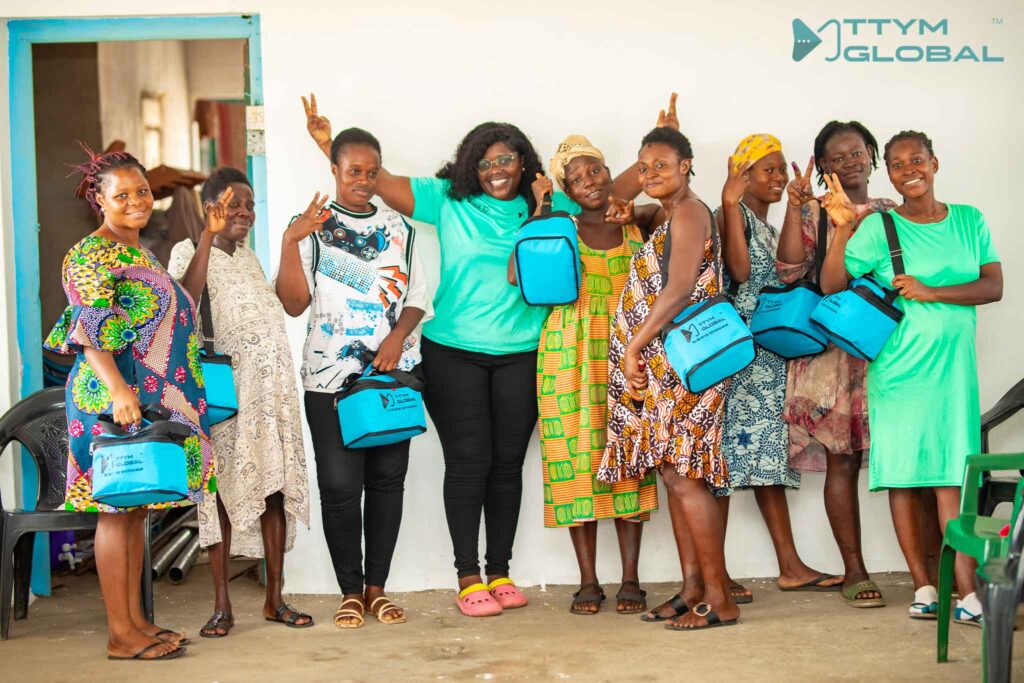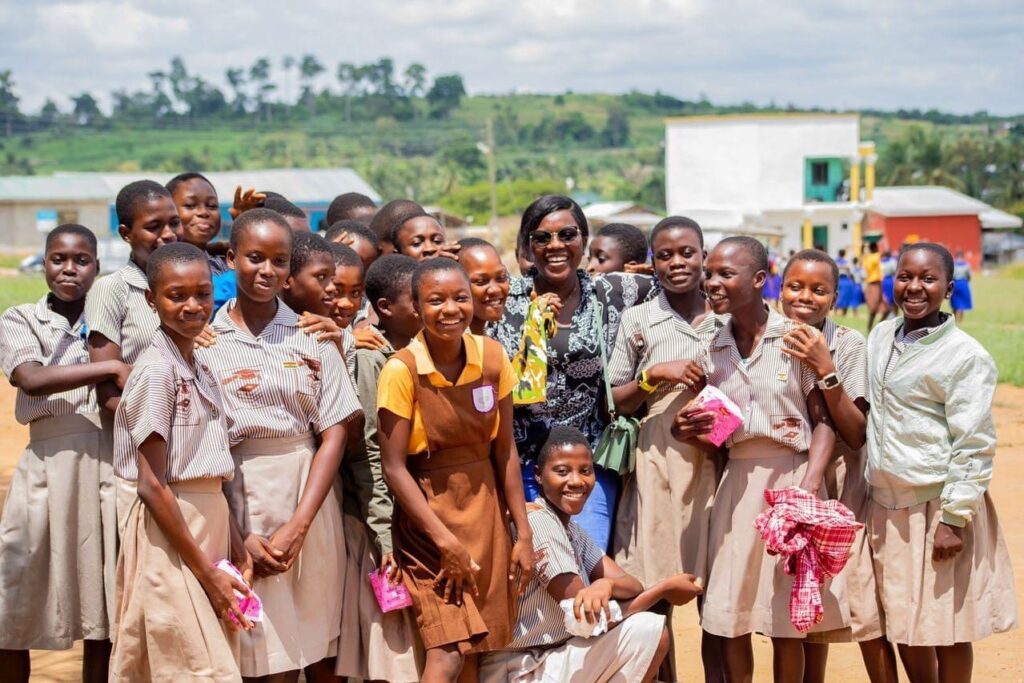Ghanaian midwife Sarah Nkansah Boateng is improving reproductive, maternal, and child health solutions in Ghana. She is building innovative solutions at the intersection of health, tech and female sexual and reproductive health. As the founder of Talk To Your Midwife Global, she employs technology and on-the-ground services to enhance maternal care, antenatal services, sexual education, and reproductive health for women and girls in Ghana. Boateng aims to expand these efforts across Africa.
The award-winning midwife is a passionate advocate for women’s health, a radio host, and a changemaker. She has empowered thousands of women and young girls to take control of their sexual and reproductive health. Through her nonprofit organisation, Nkansah’s Foundation, she promotes healthy views on menstrual flow and teaches young girls of reproductive age proper menstrual hygiene. She organises training for young girls on making their own reusable pads and provides them with WASH systems.
In an exclusive interview with The Benchmark, Sarah Nkansah Boateng shared her journey to driving sustainable health solutions across Ghanaian Communities.
The Benchmark: Can we please meet you?
Sarah Nkansah Boateng: My name is Sarah Nkansah Boateng from Ghana. I am a sexual reproductive health advocate, a passionate Midwife, and the founder of Talk To Your Midwife Global.
So tell us, how did your journey begin? Why midwifery, and what’s the driving force behind everything you do?
Well, my journey has been one of consistency, passion and The God Factor. For starters, I never planned to be a midwife. I have always wanted to study law, but somehow, my Dad asked me to go into midwifery. At that point, we didn’t even have money for law school and in Ghana, there was this school program for those who wanted to be midwives, so my Dad encouraged me to go for it. God redirected my path through my Dad. Getting into school was still a bit tough. I faced lots of challenges, but God saw me through.
While in school, I discovered the problem of young girls in Ghana. I saw that some of them had very little knowledge about their sexuality and menstrual hygiene. Young girls of secondary school age were getting pregnant. They knew nothing about ovulation and their reproductive health, so I wanted to change that. I started my advocacy on menstrual hygiene and teaching on sexual education in year two. That was how I started.

Tell us about your brand, ‘Talk To Your Midwife Global’. How did you get the inspiration for it?
Talk To Your Midwife (TTYM) Global started as a radio programme because of my love for advocacy. I mentioned earlier that I wanted to study law, so advocating and educating young girls and women brought me back. Through the radio programme, I started supporting and educating young girls on sexual health, reproductive health, and maternal care.
We then transitioned to using technology to drive this vision. We built an app that caters to young girls and pregnant women looking to connect with a midwife from the comfort of home. From this app, young girls and women can access information about their sexual health, track their cycles, and understand their bodies.
We also moved to providing maternity healthcare services for pregnant women in the market. We saw that those pregnant women didn’t have access to proper and affordable maternal healthcare, which is essential for their health and the safety of their babies. So, we went into the market to offer maternal and antenatal care for these pregnant women.
So, TTYM Global is divided into three parts: the mobile app, our maternal and antenatal care services, and the Nkansah Foundation.
Tell us about your advocacy journey for schoolgirls.
I am a midwife, and I understand how poor menstrual hygiene can have long-term adverse effects on women, and that’s why I am teaching young girls about this. Some of the complications females face as adults can be traced back to the poor menstrual hygiene they practised while they were young.
Some girls living in Ghana communities don’t have access to pads. Some of them use leaves, rags, and toilet rolls for their periods, while some don’t even use anything at all. Some girls see menstruation as dirty and think people will laugh at them because of it, so they even miss school when they menstruate. We had to teach these girls about menstrual health, clear up all the misconceptions and break the stigma surrounding it.
We also started distributing reusable pads to them, but when we noticed this was not sustainable, we started teaching them how to make their own pads. So far, we’ve reached over 6,000 girls across 12 schools in Ghana and drilled 6 boreholes for them.

What are your future plans for the TTYM Global brand?
I’ll borrow the term ‘The Future is Very Bright’ for TTYM Global. I’m looking towards beaconing institutions to reach more girls. We will also push harder to hit our Sustainable Development Goal 3 target—especially in reducing maternal mortality rates. We will push harder because we still have a lot of work to do.



